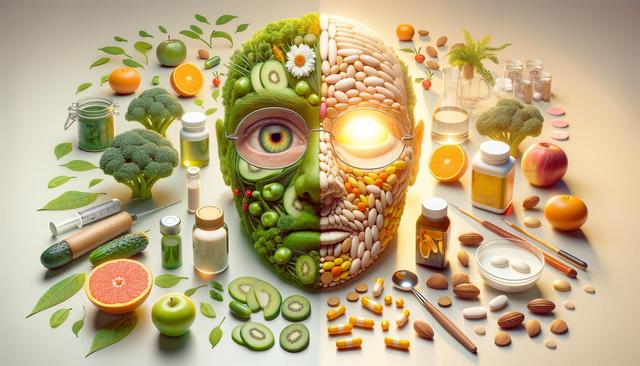Understanding Depression and Anxiety Disorders
Depression and anxiety are among the most common mental health conditions affecting people worldwide. While they can occur separately, it’s not uncommon for individuals to experience symptoms of both simultaneously. Depression is characterized by persistent sadness, loss of interest in activities, and a general feeling of hopelessness. Anxiety, on the other hand, involves excessive worry, restlessness, and physical symptoms like a racing heart or sweating. These conditions can interfere significantly with daily life, work responsibilities, and personal relationships. Recognizing the symptoms early can lead to more effective treatment outcomes and improved quality of life.
There are various types of depression and anxiety disorders, including major depressive disorder, generalized anxiety disorder, social anxiety disorder, and panic disorder. Each has its own specific symptoms and treatment approaches. Fortunately, mental health professionals today have a deeper understanding of these conditions than ever before, which allows for tailored treatment plans that reflect the unique experiences of each individual.
Psychotherapy: A Core Treatment Approach
Psychotherapy is often a foundational treatment for both depression and anxiety. Also known as talk therapy, it involves working with a trained mental health professional to explore thoughts, feelings, and behaviors. One of the most widely used forms is cognitive-behavioral therapy (CBT), which helps individuals identify and challenge negative thought patterns and develop healthier coping mechanisms.
Benefits of psychotherapy include:
- Improved emotional regulation
- Enhanced problem-solving skills
- Better understanding of personal triggers
- Development of effective coping strategies
Other therapeutic approaches include interpersonal therapy (IPT), dialectical behavior therapy (DBT), and exposure therapy, especially in cases of anxiety disorders like phobias or PTSD. Sessions can be conducted one-on-one, in groups, or with family members, depending on the specific needs of the individual.
Medication Options for Symptom Management
In many cases, medication can be an effective component of treatment for depression and anxiety. Antidepressants, such as selective serotonin reuptake inhibitors (SSRIs), are commonly prescribed to help regulate mood and reduce symptoms. These medications work by adjusting the levels of neurotransmitters in the brain, such as serotonin and dopamine, which play a key role in mood regulation.
Common classes of medications include:
- SSRIs (e.g., fluoxetine, sertraline)
- SNRIs (serotonin-norepinephrine reuptake inhibitors)
- Benzodiazepines (typically used short-term for acute anxiety)
- Beta-blockers (sometimes used for physical symptoms of anxiety)
It’s important to consult with a healthcare provider to determine the appropriate medication, dosage, and duration. Medication is often most effective when used in combination with psychotherapy, lifestyle changes, and regular follow-up care.
Lifestyle Changes and Support Systems
In addition to professional treatment, lifestyle modifications can play a significant role in managing depression and anxiety. These changes may not replace therapy or medication but can enhance overall well-being and support long-term recovery. Regular physical activity, for instance, has been shown to release endorphins and improve mood. Similarly, maintaining a balanced diet and getting sufficient sleep are essential for mental health.
Helpful lifestyle strategies include:
- Engaging in regular exercise
- Practicing mindfulness or meditation
- Reducing caffeine and alcohol intake
- Spending time in nature or engaging in creative hobbies
Establishing a strong support network is also crucial. Friends, family, and even support groups can provide emotional backing and reduce feelings of isolation. Online and in-person communities offer a safe space to share experiences, learn from others, and stay motivated throughout the treatment journey.
Alternative and Complementary Therapies
For some individuals, alternative therapies can be a valuable addition to traditional treatments. While not substitutes for clinical care, these methods can promote relaxation and emotional healing. Mindfulness-based stress reduction (MBSR), yoga, acupuncture, and art therapy are just a few examples of practices that have shown promise in supporting mental health.
Complementary therapies that may support mental wellness include:
- Herbal supplements (used with medical guidance)
- Massage therapy
- Breathing techniques and guided imagery
- Journaling and expressive writing
Before starting any alternative treatment, it’s essential to consult a healthcare provider to ensure safety and avoid potential interactions with medications or existing conditions. Personalized care plans that incorporate a mix of traditional and complementary strategies can offer meaningful relief and a more holistic path to recovery.
Conclusion: Finding the Right Path Toward Healing
Treating depression and anxiety is a deeply personal journey, and there is no one-size-fits-all solution. By exploring a range of treatment options—from psychotherapy and medication to lifestyle adjustments and complementary therapies—individuals can find the combination that works best for their unique needs. Early intervention, professional guidance, and a supportive environment are key to managing these conditions effectively. Whether you’re seeking help for yourself or supporting a loved one, understanding the available options is the first step toward lasting wellness and improved mental health.


